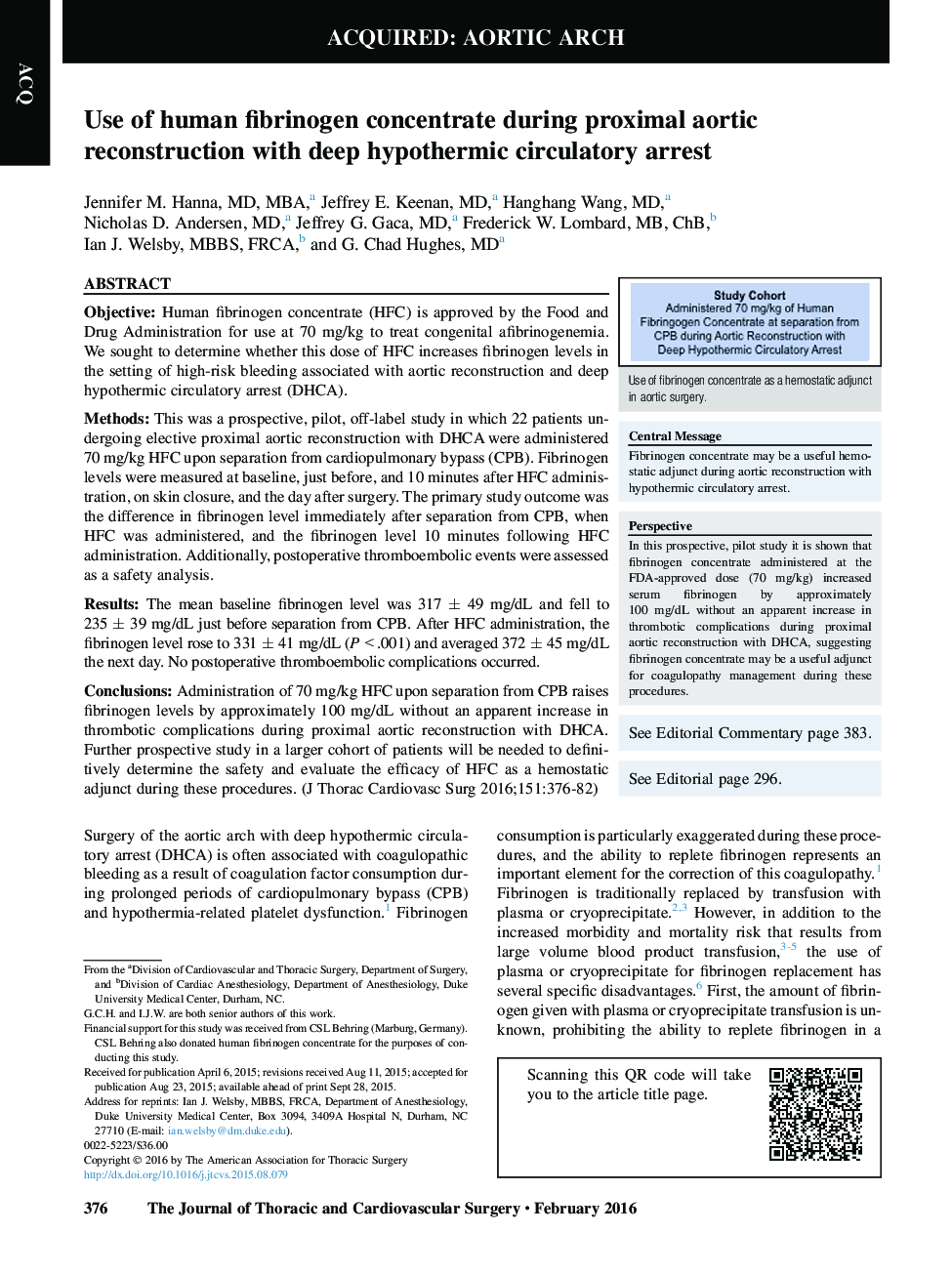| Article ID | Journal | Published Year | Pages | File Type |
|---|---|---|---|---|
| 2978956 | The Journal of Thoracic and Cardiovascular Surgery | 2016 | 7 Pages |
ObjectiveHuman fibrinogen concentrate (HFC) is approved by the Food and Drug Administration for use at 70 mg/kg to treat congenital afibrinogenemia. We sought to determine whether this dose of HFC increases fibrinogen levels in the setting of high-risk bleeding associated with aortic reconstruction and deep hypothermic circulatory arrest (DHCA).MethodsThis was a prospective, pilot, off-label study in which 22 patients undergoing elective proximal aortic reconstruction with DHCA were administered 70 mg/kg HFC upon separation from cardiopulmonary bypass (CPB). Fibrinogen levels were measured at baseline, just before, and 10 minutes after HFC administration, on skin closure, and the day after surgery. The primary study outcome was the difference in fibrinogen level immediately after separation from CPB, when HFC was administered, and the fibrinogen level 10 minutes following HFC administration. Additionally, postoperative thromboembolic events were assessed as a safety analysis.ResultsThe mean baseline fibrinogen level was 317 ± 49 mg/dL and fell to 235 ± 39 mg/dL just before separation from CPB. After HFC administration, the fibrinogen level rose to 331 ± 41 mg/dL (P < .001) and averaged 372 ± 45 mg/dL the next day. No postoperative thromboembolic complications occurred.ConclusionsAdministration of 70 mg/kg HFC upon separation from CPB raises fibrinogen levels by approximately 100 mg/dL without an apparent increase in thrombotic complications during proximal aortic reconstruction with DHCA. Further prospective study in a larger cohort of patients will be needed to definitively determine the safety and evaluate the efficacy of HFC as a hemostatic adjunct during these procedures.
